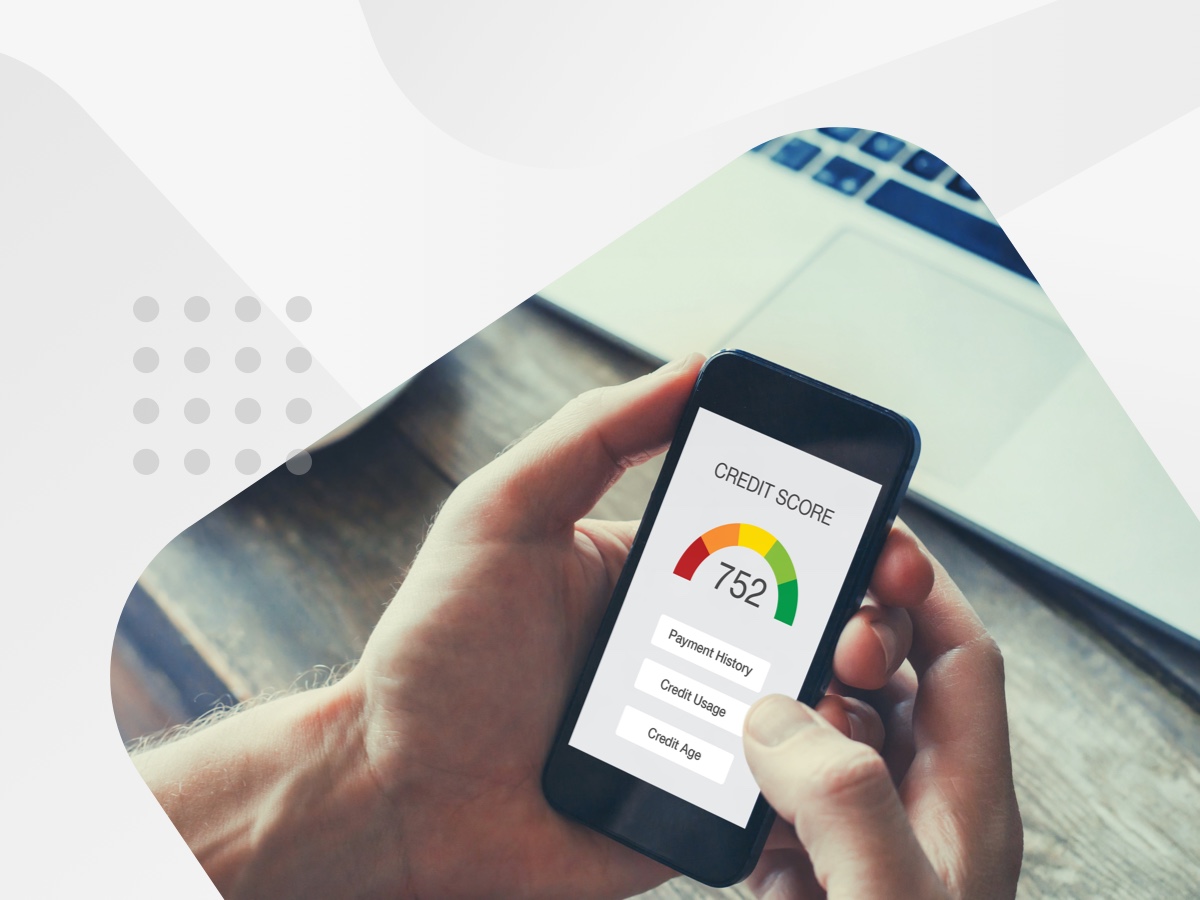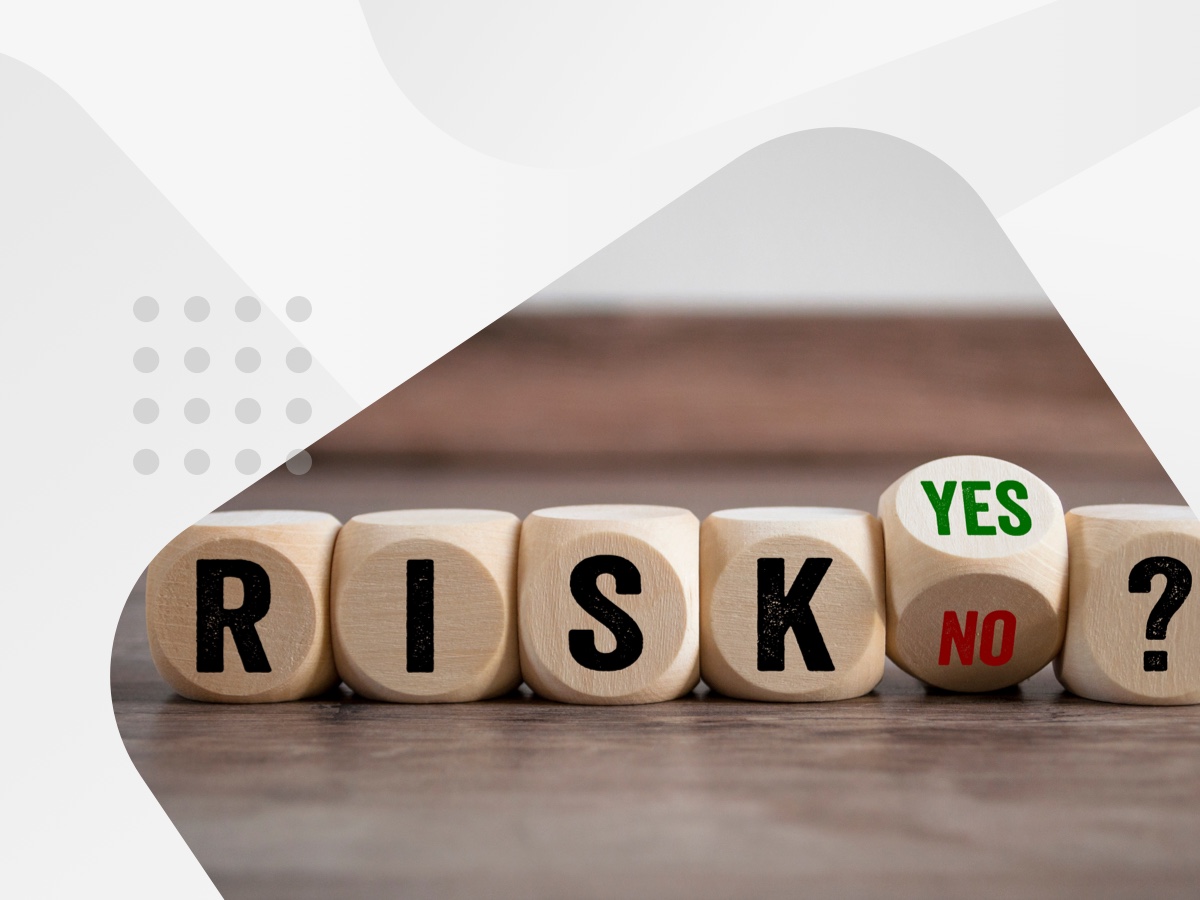
In Australia, the average credit score varies depending on which reporting bureau or ratings agency you ask as they all have their own system of measurement. For personal credit, an average score may sit anywhere from 300 to 624. For business credit, it may depend on the agency, but at CreditorWatch this may refer to a business with a RiskScore placing it in the C2 or C3 range.
What is a personal credit score and how are they used in Australia?
A credit score is a measurement of an individual’s creditworthiness, based upon your previous payment behaviour with credit products and utilities, such as loans, credit cards and energy bills, as recorded in your credit history and credit file. Whether you are a consumer or a business, a credit score is determined by an assessment of your credit history.
In Australia, a credit score is used as part of the serviceability testing in a credit provider’s application process to determine if you are likely to meet your repayments or not. The higher the credit score, generally speaking, the higher your chance of approval. If you have a score in the ‘excellent’ credit score range, you may be more likely to be approved for credit products, as you’ve indicated a low risk to the provider that you may default on payments. If you have an ‘average’ or ‘fair’ credit score, it is less likely that you will gain credit approval.
What does it mean to have an average credit score?
For consumers, an average credit score is one that falls into the category of ‘average’, or ‘fair’ as defined by the major reporting bureaus. An average credit score in Australia doesn’t necessarily mean it is a good one. In fact, a credit score in this category may indicate it is likely you will incur an adverse event in the next 12 months. According to Finder, this score places consumers in the ‘bottom 21 to 40 per cent of the credit-active population’.
Credit providers typically favour applicants with credit scores in the ‘good’ to ‘excellent’ categories. To answer the question of ‘what is a good credit score’: it is likely one that sits in the 600 range. If your credit score is registering as ‘average’ or ‘fair’ – depending on which Australian credit bureau you’re inquiring to – it may be worth working to repair your credit score before you apply for any products.
What is the average credit score in Australia?
There are multiple credit reporting bureaus and ratings agencies assessing consumer and business credit files and credit scores at once, using different datasets. The scales used are sometimes different, which means there is no specific scoring range that is universally defined as ‘average’. There is no such thing as a household credit score, it only applies to either an individual or a business.
Average consumer credit scores
For consumers, there are three major reporting bureaus – Experian, Equifax and Illion. Your score with one bureau may differ from your score with another, as each bureau records data at different periods of time, from different sources. Each bureau also uses its own unique score rating system, grading scores from poor to excellent. For personal credit, an average score may sit anywhere from 300 to 624
Credit score tiers: Experian, Equifax and Illion
| Experian | Equifax | Illion |
Excellent | 800-1000 | 833-1200 | 800-1000 |
Very Good | 700-799 | 726-832 | 700-799 |
Good | 625-699 | 622-725 | 500-699 |
Average/fair | 550-624 | 510-621 | 300-499 |
Below average | 0-549 | 0-509 | 0-299 |
As you can see, the lowest credit score a consumer could receive is zero, with the highest credit score being 1,000 to 1,200, depending on the bureau. A credit score of 810 will see you sitting in either the ‘very good’ or ‘excellent’ range.
Based on the median of each average credit score range, the credit average minimum is 530.
In terms of average credit score by age, Finder research shows that for those aged under 21, the average credit score is:
- Under 21: 3 for women and 743.2 for men
- Age 21-30: 7 for women and 675.7 for men
- Age 31-40: 4 for women and 684.8 for men
- Age 41-50: 8 for women and 700.6 for men
- Age 51-60: 9 for women and 735.1 for men
- 60+: 9 for women and 788.3 for men
Average business credit score
As a credit reporting agency, CreditorWatch utilises its RiskScore technology to inform businesses where potential clients, trading partners and suppliers sit in terms of their capacity for credit risk.
RiskScore used three extensive categories of data, including over 11 million monthly trade lines, to assess the risk profile, and likelihood of default over the following 12 months, of an entity. The entity will then receive a score between 0-850, with a higher score indicating a lower credit risk. Our team then uses this score to assign a credit rating to that entity, from A1 to F. There are eight risk level categories from ‘very low’ to ‘default’, which assist businesses in easily understanding the creditworthiness of an entity from just a glance.
RiskScore Credit Ratings
Credit Rating | Risk Category | Recommendation |
A1, A2, A3 | Very Low | Entity has a very strong aptitude to meet credit commitments. Extend terms within consideration. |
B1, B2 | Low | Entity has a strong aptitude to meet credit commitments. Unfavourable economic conditions may lead to a weakened capability to meet financial commitments. Extend terms within consideration |
B3, C1 | Neutral | Entity currently has the aptitude to meet credit commitments. Unfavourable business, financial, or economic conditions may impair ability to meet financial commitments. Extend terms and monitor ongoing payment behaviour. |
C2 | Acceptable | Entity has an adequate aptitude to meet credit commitments. Unfavourable business, financial, or economic conditions will likely impair the capacity or willingness to meet financial commitments. Extend terms, closely monitor ongoing payment behaviour. |
C3 | Borderline | Entity is vulnerable and the aptitude to meet credit commitments is dependent upon favourable business, financial, and economic conditions. Trade with caution, closely monitor and consider your payment terms. |
D1, D2, D3 | High | Entity is currently highly vulnerable. COD trading is highly recommended. |
E | Impaired | Entity is currently highly vulnerable to non-payment and default. Trading eligibility must be considered. |
F | Default | Entity has become insolvent or does not have the ability to trade. |
How can I check my credit score for free?
For personal credit, there are several online platforms and apps that allow consumers to gain quick, free access to their credit scores. These platforms typically run a soft credit inquiry on your credit file to determine your credit score without impacting your credit history. However, to view your credit history, you’ll need to request a copy of your credit file from any of the major bureaus, which may be accessed for free, once every three months.
For businesses, you may gain insights into your company credit file and credit score through the paid reporting offered by credit agencies, such as CreditorWatch. Not only might you deepen your understanding of your own risk profile and credit rating, utilising our debtor management tools could help your business easily view the company credit reports of new entities. This in turn may assist you in high-level decision making around which businesses to engage with.
How can you boost your credit score?
Negative payment behaviour will severely impact your credit score and be recorded on your credit history.
For individuals, this may include:
- Late payments – two years
- Writs, summons and court judgements – five years
- Payment defaults – five years
- Bankruptcies, debt agreements and personal insolvency agreements – seven years
For businesses, this may include:
- Repayment history – two years
- Credit enquiries, payment defaults and court judgements – five years
- Overdue accounts listed as infringements – seven years
It can be possible to improve your credit score by demonstrating positive payment behaviour. In fact, the average credit score in Australia recently jumped to 734 from 710 from March 2020 to December 2021, according to one major bureau. This was because of Australia’s pandemic savings and spending habits.
How to build your credit score:
- Pay bills on time – The simplest way to demonstrate positive payment behaviour is to ensure you never miss a payment. Whether you’re trying to boost consumer or business credit, consider setting automated payments and calendar reminders so late payment cannot occur.
- Check your report for errors – It’s not out of the question for errors to occur on a credit file, including the credit history of an individual or business with a similar name to yours being added. Grab a copy of your credit file and go through it with a fine-tooth comb. If you locate any errors, flag these as soon as possible with any credit reporting bureaus or ratings agencies.
- Pay off your debts – Paying off outstanding debts, such as personal loans or business loans, may help to improve your credit score as it demonstrates strong financial responsibility.
- Lower your credit limit – If you have a business or consumer credit card, consider lowering your credit limit while you work to improve your credit score. You won’t be tempted to accrue as much debt, and it may give your score a hike.
For more information on how RiskScore could help identify risky trading partners and exposure to bad debt, please speak to our team of experts today.

Get started with CreditorWatch today
Take your credit management to the next level with a 14-day free trial.

